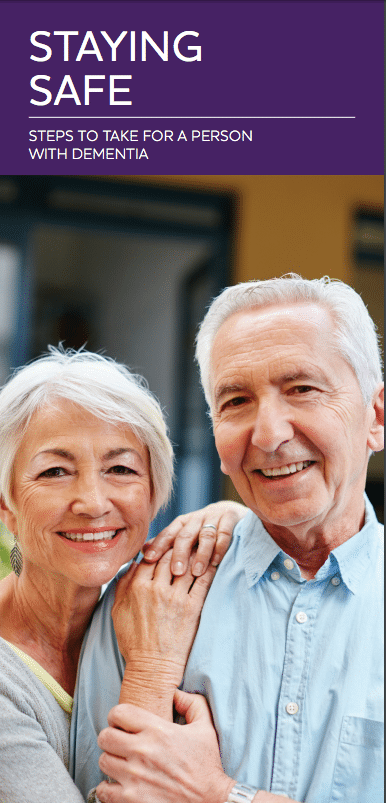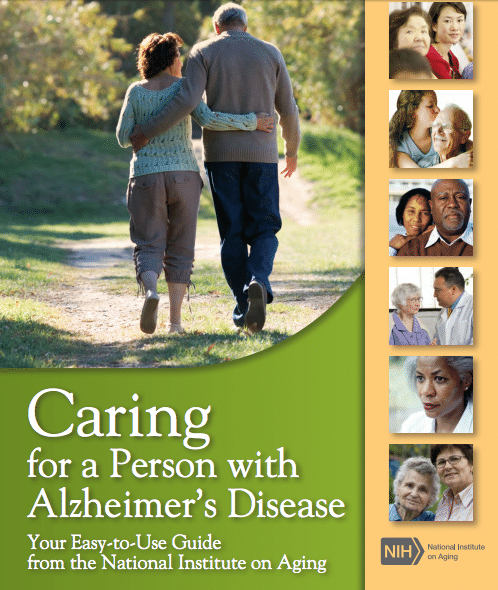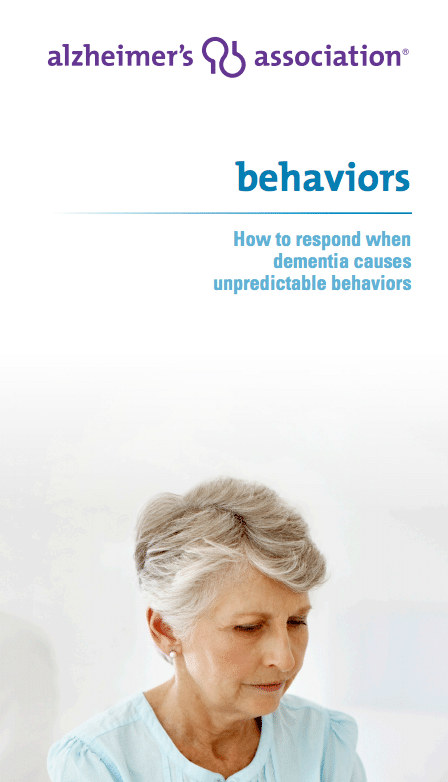Safe at Home with Dementia or Alzheimer’s

Is Your Loved One With Dementia or Alzheimer’s Safe at Home?
When memory loss happens, safety is a high priority. It’s important to develop a plan and take action. By making changes and staying alert to possible hazards, you can prevent injuries and actually help your loved one to feel safer at home. Learn about all of the ways in which you can keep your loved one safe and living independently for as long as possible.
DISCOVER
(Click to See Answers)
What specific changes happen that places a person with memory loss at risk for safety?
- Trouble with balance can happen as a result of changes physically and neurologically (in the brain).
- Forgetfullness, such as not remembering how to use an appliance or how to use a phone properly, which affects their judgement.
- Changes in their senses (vision, hearing, ability to feel extreme temperatures of objects, etc.)
- Getting lost, because their sense of time and place is altered.
- Behaviors, such as suspiciousness, fearfulness, confusion, or irritation, that can make them difficult to manage and reason with.
Are there simple things we can quickly do around the house to make it safer?
Yes, and many are low cost as well! In no certain order, here’s some practical changes you can make to keep your loved one safe, based on suggestions from the National Institutes of Health (NIH):
- Remove or lock up alcohol, as drinking alcohol can cause increased confusion.
- Clearly place emergency contact numbers and your home address near all telephones.
- Hide a spare key somewhere outside the home, in case one or all of you get locked out of the house.
- Remove or lock up dangerous objects, such as guns, knives, power tools, etc.
- Get rid of poisonous plants. If you don’t know for sure if a plant is poisonous, contact a local nursery or the poison control center at 1-800-222-1222)
- Think about disconnecting the garbage disposal.
Many more ideas and tips can be found in the NIH Home Safety Guide.
We're afraid of him/her wandering and getting lost. What can we do?
- Set daily routines. This provides structure. Things like mealtimes, personal hygiene, sleeping schedules, and time for chores and activity are sugggested.
- Pay attention to the time of day or circumstances that cause them to wander. Plan activities during those times.
- If your loved one wanders, avoid busy places that makes them even more confused and likely to wander off. Places like malls, stores, or social events/places are ones to consider.
- Pay attention to their basic needs, so they don’t try to go off on their own to get them met. Examples include going to the bathroom, eating, feeling thirsty, etc.
- Give them reassurance if they should feel lost or disoriented. Try not to correct them. Instead, offer words of comfort like, “We are safe and I’ll be with you.”
FAST FACTS
%
% of people with Dementia or Alzheimer's that will wander. (Alzheimer's Association)
%
The % of persons with Alzheimer's or Dementia who live alone. (Alzheimer's Association)
Watch this Video Featuring Families and Experts Talking About Being Safe at Home with Memory Loss
NOW WHAT?
Tools & Resources at Your Fingertips
Take Action!

Use a Home Safety Checklist
Using this home safety checklist from the National Institute on Aging (NIA), determine if there are any environment concerns at home. And, learn how their current behavior and impaired senses could make aspects of their home unsafe, and what you can do to resolve them.


